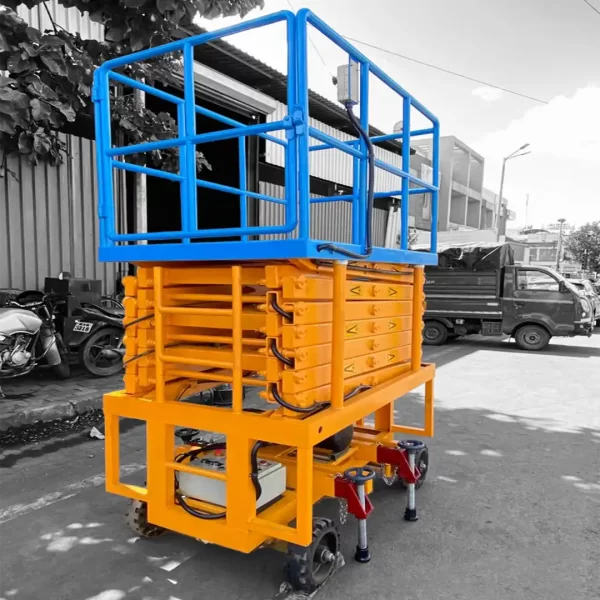
Artificial Intelligence (AI) has been a transformative force, reshaping various aspects of our lives. One of the most significant arenas where AI is making a profound impact is the job market. As we traverse the years from 2023 to 2030, the evolving landscape of employment is likely to be shaped by the continued integration of AI technologies. In this comprehensive exploration, we delve into the multifaceted ways in which AI is expected to influence jobs during this period.
1. Automation and Job Displacement
AI’s role in automating routine tasks and processes has been a double-edged sword. On one hand, it enhances efficiency and productivity, but on the other, it raises concerns about job displacement. Jobs that involve repetitive and predictable tasks are particularly vulnerable to automation. Sectors such as manufacturing, customer service, and data entry are likely to see significant changes in job profiles, with some roles becoming obsolete.
However, the impact on employment is not uniformly negative. As routine tasks get automated, there’s an emergence of new roles that require human creativity, critical thinking, and emotional intelligence. The demand for skills in areas such as AI development, data analysis, and systems management is expected to surge, presenting new opportunities for workers to upskill and transition into higher-value roles.
2. Augmentation of Human Capabilities
Rather than being a replacement, AI is anticipated to augment human capabilities. This augmentation can lead to increased productivity and job satisfaction. In fields such as healthcare, AI is assisting medical professionals in diagnosis and treatment planning, allowing them to focus on more complex and nuanced aspects of patient care. Similarly, in knowledge-intensive sectors like finance and law, AI tools can enhance decision-making by providing insights and reducing the burden of routine tasks.
This collaborative approach between humans and AI is likely to create a symbiotic relationship where each complements the strengths of the other. Jobs will evolve to require a combination of technical proficiency and soft skills, emphasizing the importance of a well-rounded workforce.
3. Rise of New Industries and Job Categories
The integration of AI is giving rise to entirely new industries and job categories. As AI technologies mature, niche areas such as AI ethics, explainability, and bias mitigation are becoming critical considerations. Jobs in AI governance, policy-making, and auditing are expected to see an upswing as organizations grapple with the ethical implications and societal impact of AI implementations.
Furthermore, the development and maintenance of AI systems necessitate skilled professionals in areas like machine learning, natural language processing, and robotics. The demand for AI specialists, data scientists, and algorithm engineers is projected to increase, creating a competitive job market that rewards expertise in cutting-edge technologies.
4. Adaptation and Reskilling Initiatives
The dynamic nature of the job market in the AI era underscores the importance of adaptability and continuous learning. Employers and educational institutions are recognizing the need for reskilling initiatives to equip the workforce with the skills required for the AI-dominated future.
Government policies and corporate strategies focused on education and training are becoming crucial in addressing the potential skills gap. Initiatives such as online courses, vocational training programs, and apprenticeships are gaining prominence, fostering a culture of lifelong learning. Workers who embrace these opportunities are more likely to thrive in the evolving job landscape, navigating transitions with agility.
5. Challenges and Societal Implications
Despite the positive aspects, the widespread adoption of AI in the job market is not without challenges. The fear of job loss and economic inequality looms large. Certain demographics and industries may be disproportionately affected by AI-induced changes, leading to social and economic disparities. Addressing these issues requires a concerted effort from policymakers, businesses, and society at large to ensure that the benefits of AI are distributed equitably.
Another concern is the ethical use of AI in employment decisions. Bias in algorithms and automated decision-making processes can perpetuate existing inequalities. Striking a balance between technological innovation and ethical considerations is imperative to build a fair and inclusive job market.
6. Global Perspectives on AI and Employment
The impact of AI on jobs varies across different regions of the world. While developed economies may experience a faster adoption of AI technologies, developing nations might face challenges in keeping pace. However, AI also presents opportunities for leapfrogging, allowing developing countries to embrace advanced technologies and create innovative solutions to address local challenges.
International collaboration and knowledge-sharing become essential in ensuring a globally inclusive approach to the future of work. Cross-border efforts can facilitate the exchange of best practices, foster innovation, and mitigate the risks associated with AI-induced job transformations.
Conclusion
As we navigate the years from 2023 to 2030, the influence of AI on jobs is poised to be transformative. While certain job roles may face obsolescence due to automation, the evolution of new industries and the augmentation of human capabilities by AI present a plethora of opportunities. Embracing a proactive approach to reskilling, fostering ethical AI practices, and addressing societal challenges are essential steps in creating a future job market that is inclusive, adaptive, and equitable.
In essence, the key lies in recognizing AI not as a threat but as a catalyst for change, prompting us to rethink traditional notions of work and paving the way for a more dynamic, resilient, and interconnected employment landscape.










